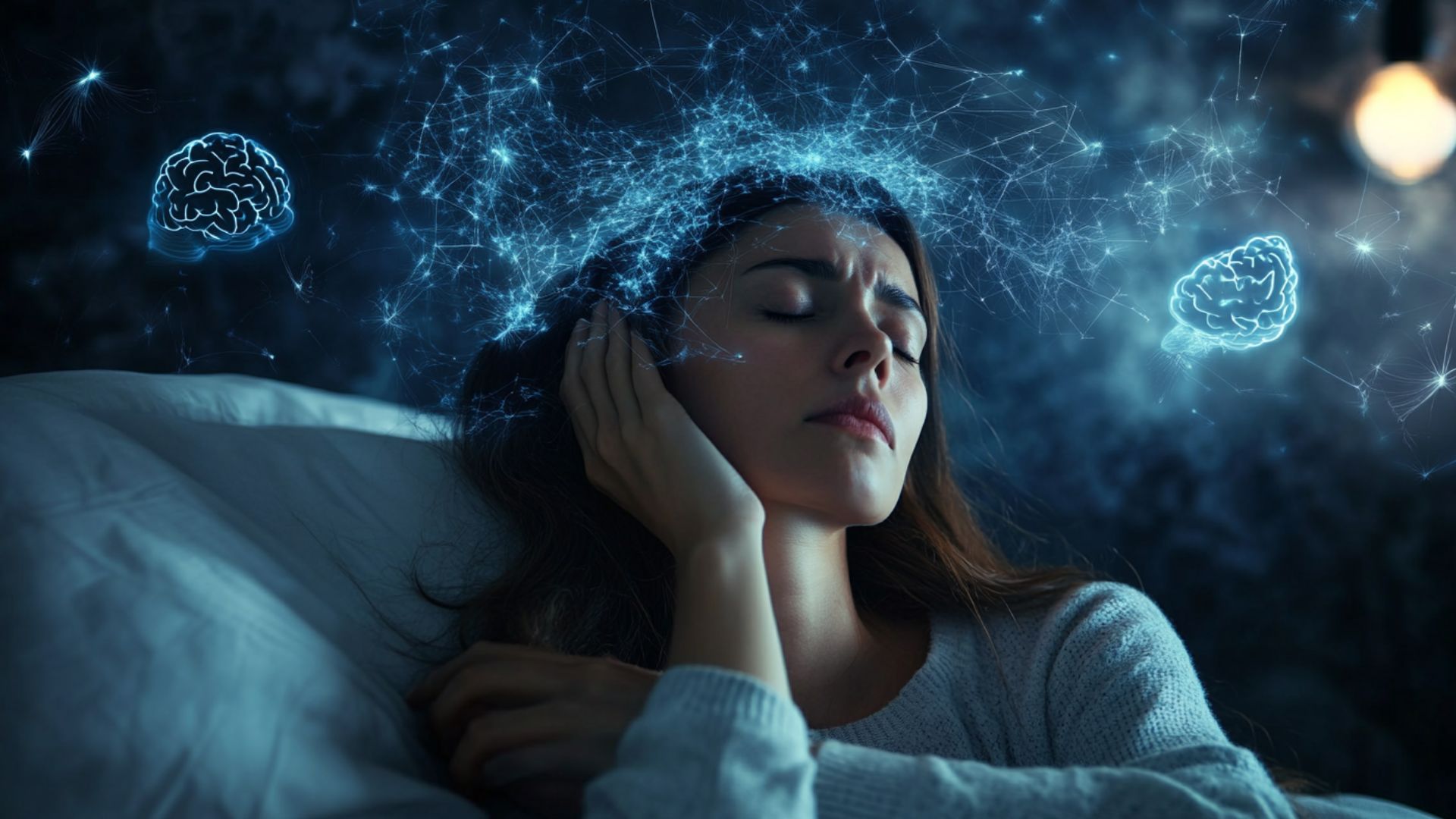Sleep represents one of the most crucial factors for maintaining optimal neurological health. Quality sleep plays a vital role in both overall wellness and neurological health. Sleep and brain health are closely interconnected and significantly impact each other throughout life. Neuroscience research has demonstrated that sleep profoundly affects brain function and cognitive performance.
During sleep, the human body enters a state of rest, while the brain becomes highly active. Poor sleep becomes a major obstacle to normal emotional regulation and memory consolidation. Without adequate rest, individuals cannot think clearly and experience weakened immune function. Sleep significantly impacts hormonal systems and mental health disorders.
REM sleep and memory formation are particularly connected during this critical sleep phase. REM sleep affects emotional regulation while supporting immune system maintenance throughout the night. Irregular sleep schedules can prevent the brain from properly recharging, which can lead to cognitive impairment. Individuals may experience reduced creative potential and problems with mental abilities. Addressing sleep issues promptly helps ensure optimal neurological health and cognitive function.
Sleep and Brain Health Explained: How Restorative Functions, Mood Balance, and Neuroplasticity Work Together
Sleep problems affect millions of people worldwide and have a significant impact on neurological health. Professional medical teams provide comprehensive treatment approaches to restore proper sleep patterns. Sleep disorders can seriously impact health and have far-reaching consequences for neurological well-being.
Sleep and brain health are interconnected through their effects on emotions, memory formation, and cognitive adaptability. Understanding that healthy sleep represents an excellent investment in overall health is essential. Quality sleep strengthens immune function, preserves memory, and maintains cognitive abilities throughout life.
Here are the main aspects of sleep and optimal brain functionality:
- Restorative Functions. The brain balances neurotransmitters and restores energy metabolism during deep sleep phases. Brain cells undergo repair processes that improve memory consolidation and mental performance.
- Mood and Cognitive Functions. Quality rest helps improve mood stability and reduces anxiety levels significantly. Adequate sleep is essential for enhanced decision-making capabilities and cognitive performance.
- Neuroplasticity. Sleep strengthens neural connections that are crucial for learning and memory formation. Individuals become more adaptive to new experiences and develop enhanced cognitive flexibility.
- Healthy Sleep Habits. Proper sleep hygiene practices protect brain health through consistent routines. Maintaining good hydration and reducing blue light exposure before bedtime helps optimize brain function.
REM Sleep and Memory: Why Deep Dreaming Phases Are Critical for Learning and Cognitive Performance
Deep sleep phases are crucial for learning processes and optimizing cognitive performance. REM sleep has a significant influence on creative potential and problem-solving abilities in individuals. This sleep stage is closely connected to memory formation and has cumulative cognitive benefits.
REM sleep and memory are closely interconnected, with significant influences on emotional balance and processing. Individuals who lack sufficient REM sleep often experience cognitive and emotional problems. People frequently experience emotional instability, reduced performance, and decreased creativity without adequate REM sleep.
Quality, healthy sleep improves learning capacity and enhances the brain’s resilience to stress. Here are key connections between REM sleep and memory formation:
- Memory Consolidation. Knowledge consolidation occurs through the systematic organization of information during REM sleep. This sleep phase organizes daily information and transfers important data to long-term memory storage.
- Emotional Processing. REM sleep and memory formation are essential for ongoing emotional integration. This phase processes emotional experiences, stress, and psychological challenges effectively while reducing mental load.
- Cognitive Enhancement. Quality REM sleep ensures proper consolidation of both memory and emotional experiences. This phase helps reduce stress levels and mental overload while maintaining concentration.
Maintaining regular sleep schedules, staying properly hydrated, and engaging in regular physical activity are crucial for achieving optimal REM sleep. Combined, these practices ensure comfortable rest that positively affects brain function. Reducing caffeine and alcohol consumption, especially in the hours leading up to bedtime, can significantly improve sleep quality.
Circadian Rhythm and the Brain: Managing Light, Hormones, and Body Clock Alignment for Neurological Wellness
Circadian rhythms represent the brain’s internal biological clock that regulates numerous physiological processes. These rhythms help properly manage light exposure and hormone production throughout the day. Regulation of the biological clock is essential for maintaining neurological wellness and optimal cognitive function.
Professional healthcare providers offer specialized support for individuals experiencing sleep and neurological health problems. Expert teams provide comprehensive knowledge about emotional balance and neurological stability through evidence-based approaches. Circadian rhythm protection helps improve daily functioning and overall quality of life.
Here are key connections between circadian rhythms and brain function:
- Biological Clock Regulation. The proper functioning of the circadian rhythm has a significant impact on human health and cognitive performance. Correct circadian rhythms significantly influence energy balance, metabolism, and neurological function, while also improving memory formation.
- Disruption Effects. Shift work and frequent time zone changes can hurt health and cognitive function. Irregular schedules disrupt natural biological rhythms, leading to significant health issues that impact attention and concentration.
- Light Exposure Impact. Natural light exposure has a significant impact on maintaining a healthy circadian rhythm. Morning sunlight has substantial positive effects on human health and circadian function. However, blue light from electronic screens can create adverse effects and disrupt natural sleep patterns.
- Melatonin Production. Circadian rhythms in the brain help regulate melatonin production for optimal sleep quality. This sleep hormone reaches peak levels during darkness at specific times each night. The brain naturally transitions to complete rest states through this hormonal process.
Sleep Deprivation Effects You Should Not Ignore: From Daily Brain Fog to Increased Long-Term Neurological Risks
Sleep deprivation is a minor issue for many people initially. However, chronic sleep deprivation has serious, lasting impacts on overall health and cognitive function. This process disrupts fundamental brain functions and can lead to significant neurological decline. Ignoring sleep problems can become seriously detrimental to health and neurological conditions over time.
Here are the key characteristics of sleep deprivation effects on brain health:
- Immediate Symptoms. Individuals may experience persistent headaches and prolonged irritability following sleep deprivation. These symptoms often appear first after periods of insufficient sleep and may require treatment.
- Cognitive Impairment. Brain fog represents another serious problem resulting from inadequate sleep quality. Individuals may experience slowed thinking processes and an inability to formulate thoughts clearly. Additional symptoms include constant memory lapses and poor concentration, which can affect daily decision-making.
- Seizure Risk. Sleep deprivation lowers seizure thresholds, particularly for individuals with epilepsy or neurological conditions. People with epilepsy face higher risks of experiencing dangerous seizures without adequate sleep. Sleep deprivation can trigger seizures and significantly increase their frequency and severity.
- Long-term Risks. Sleep deprivation effects include serious long-term risks associated with neurodegenerative conditions. Individuals with chronic sleep problems face increased risks of developing dementia, stroke, and cardiovascular disease.
Glymphatic System Sleep 101: Nightly Brain Detox, Fluid Clearance, and the Role of Posture and Hydration
During sleep, the brain undergoes detoxification, removing harmful waste products through specialized systems. This process cleanses the brain through the glymphatic system, which helps prevent the development of neurodegenerative diseases. The glymphatic system, which operates during sleep, provides significant protection against cognitive decline and brain damage.
Supporting this system helps improve essential neurological barriers and long-term brain health. Quality sleep represents a necessary component for maintaining and improving overall neurological health. Here’s how the glymphatic system affects sleep and brain health:
- Brain Cleansing Process. During sleep, the brain’s waste clearance system becomes highly active. Cerebrospinal fluid flushes neural pathways and removes harmful waste products accumulated throughout the day.
- Deep Sleep Activation. This clearance system operates most efficiently during deep sleep phases when individuals achieve rest. The glymphatic system works optimally during slow-wave sleep periods for maximum detoxification benefits.
- Sleep Position Benefits. The glymphatic system functions more effectively during sleep in certain positions. Side sleeping can improve the brain’s cleansing processes compared to other sleeping positions. This represents an optimal position for both rest and enhanced detoxification processes.
- Hydration Requirements. Adequate water intake is crucial for the proper functioning of the glymphatic system during sleep. Good hydration supports cerebrospinal fluid flow and optimizes waste clearance throughout the night. However, excessive water intake close to bedtime can disrupt sleep quality.
Sleep Services and Treatments: From CBT-I and Devices to Neurological Evaluation and Personalized Care Plans
Individuals with neurological conditions can receive comprehensive, evidence-based treatment for sleep disorders. Quality sleep services and treatments represent essential steps toward maintaining optimal neurological health. Specialized evaluations and consultations enable the development of individualized solutions tailored to each patient’s unique needs.
Here are available services for understanding and treating the connection between sleep and brain health:
- Cognitive Behavioral Therapy for Insomnia (CBT-I). This evidence-based therapy corrects sleep patterns through behavioral interventions, eliminating the need for medication. The process focuses on enhancing sleep hygiene and addressing psychological factors that impact sleep quality.
- Medical Devices. Specialized medical devices effectively treat sleep apnea and other sleep-related breathing disorders. These devices often represent excellent treatment options for individuals with breathing problems that affect their sleep.
- Neurological Evaluation. Comprehensive neurological assessments help detect seizure activity directly related to sleep disturbances. Healthcare providers recognize the effects of sleep deprivation and implement targeted interventions to restore healthy sleep rhythms.
- Personalized Care Plans. Proper hydration, lifestyle modifications, and alcohol reduction represent key treatment components. Digital tracking tools are integrated to monitor patient health and sleep patterns for improved outcomes continuously.












I've given up... the stress her office staff has put me through is just not worth it. You can do so much better, please clean house, either change out your office staff, or find a way for them to be more efficient please. You have to do something. This is not how you want to run your practice. It leaves a very bad impression on your business.
Please, leave your review
Write a comment: